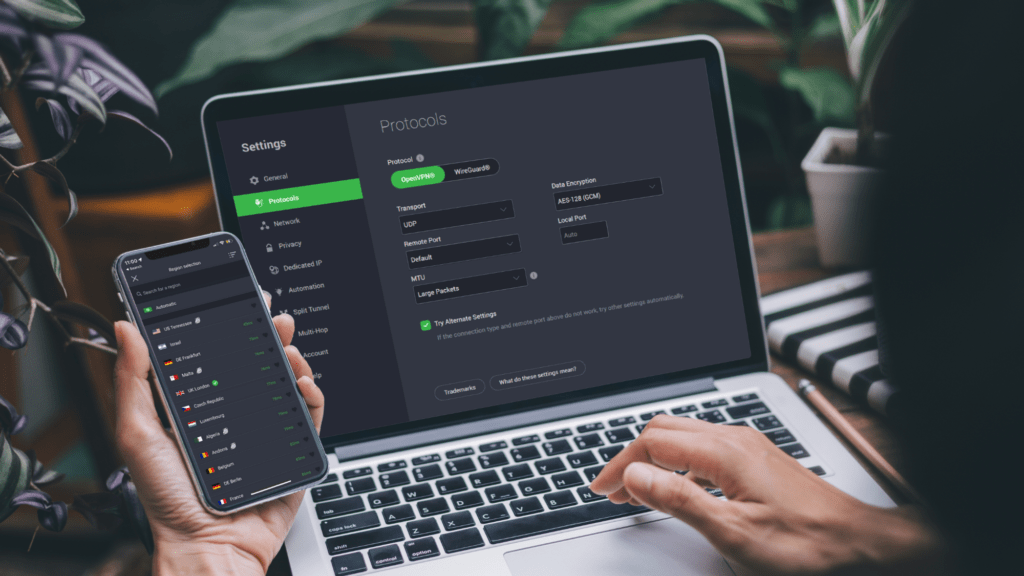Introduction to VPN For Remote Workers
The world of work has undergone a significant transformation in recent years, with the rise of remote work becoming more prevalent than ever before. Thanks to technological advancements, employees now have the flexibility to work from the comfort of their homes or anywhere else they choose. This shift towards remote work has brought about numerous benefits for both employees and employers, such as increased productivity, improved work-life balance, and reduced overhead costs.
Challenges of remote work
While remote work offers many advantages, it also comes with its fair share of challenges. One of the main challenges faced by remote workers is ensuring the security and privacy of their online activities. Without the protection of a secure network, remote workers are vulnerable to cyber threats such as hacking, data breaches, and identity theft. Additionally, remote workers may face limitations in accessing certain websites or online services due to geographical restrictions or company policies.
Benefits of using a VPN for remote work
To overcome the challenges of remote work and maximize efficiency, remote workers can leverage the power of Virtual Private Networks (VPNs). A VPN is a secure tunnel that encrypts the connection between the user’s device and the internet, ensuring that all data transmitted is secure and private. By using a VPN, remote workers can enjoy a wide range of benefits.
First and foremost, a VPN provides enhanced security by encrypting the data sent and received by the user’s device. This encryption makes it nearly impossible for hackers or malicious actors to intercept or decipher the data, protecting sensitive information such as login credentials, financial details, and company data. With a VPN, remote workers can have peace of mind knowing that their online activities are shielded from prying eyes.
Moreover, a VPN allows remote workers to bypass geographical restrictions and access websites or online services that may be blocked in their current location. This is particularly useful for remote workers who need to access company resources, collaborate with colleagues, or carry out tasks that require a specific IP address. With a VPN, remote workers can connect to servers in different locations, giving them the freedom to work as if they were physically present in the desired location.
How VPNs enhance efficiency for remote workers
In addition to the security and accessibility benefits, VPNs can significantly enhance the efficiency of remote workers. By using a VPN, remote workers can enjoy a faster and more stable internet connection, even when working from a public Wi-Fi network. The VPN creates a secure tunnel that not only encrypts the data but also optimizes the connection, resulting in faster download and upload speeds. This means that remote workers can seamlessly collaborate with colleagues, participate in video conferences, and transfer files without experiencing lag or interruptions.
Furthermore, VPNs provide remote workers with the ability to maintain consistent productivity regardless of their location. With a VPN, remote workers can securely connect to their company’s network and access all the necessary resources, such as files, databases, and applications. This eliminates the need for remote workers to constantly switch between different networks or rely on less secure methods such as email attachments or cloud storage. By streamlining the workflow and ensuring uninterrupted access to resources, VPNs empower remote workers to work efficiently and effectively.
Choosing the right VPN for remote work
When it comes to choosing a VPN for remote work, there are several factors to consider. Firstly, it is important to select a VPN that offers strong encryption protocols and a strict no-logs policy. This ensures that all data transmitted through the VPN remains secure and private, without any risk of being stored or shared with third parties. Additionally, the VPN should have a large network of servers in various locations to provide remote workers with flexibility and accessibility.
Another crucial factor to consider is the VPN’s speed and performance. Remote workers rely on a fast and stable internet connection to carry out their tasks efficiently. Therefore, it is essential to choose a VPN that offers high-speed servers and minimal latency. Reading reviews and conducting speed tests can help in determining the performance of different VPN providers.
Lastly, it is worth considering additional features and functionalities offered by the VPN. Some VPNs offer built-in ad-blockers, malware protection, and even split tunneling, which allows remote workers to selectively route their internet traffic through the VPN. These features can further enhance the productivity and security of remote workers.
Setting up and using a VPN for remote work
Setting up and using a VPN for remote work is a relatively straightforward process. Most VPN providers offer user-friendly applications for various devices and operating systems. To get started, remote workers need to sign up for a VPN service and download the corresponding application on their device. Once installed, they can log in using their credentials and choose a server location.
After connecting to a server, the VPN will establish a secure and encrypted connection, and the remote worker can proceed with their work as usual. It is important to note that some companies may have specific guidelines or restrictions when it comes to using VPNs for remote work. Remote workers should familiarize themselves with these guidelines and ensure compliance to avoid any potential issues.
Best practices for using a VPN while working remotely
To make the most out of using a VPN while working remotely, it is essential to follow some best practices. Firstly, remote workers should always keep their VPN software up to date to ensure they have the latest security features and bug fixes. Regularly updating the VPN application can help in maintaining a secure connection and protecting against potential vulnerabilities.
Additionally, remote workers should exercise caution when connecting to public Wi-Fi networks. While a VPN can encrypt the data, it is still advisable to avoid accessing sensitive information or conducting financial transactions while connected to a public network. When possible, remote workers should use their mobile data or a trusted private network for such activities.
Furthermore, remote workers should be mindful of their online behavior and avoid clicking on suspicious links or downloading files from unknown sources. While a VPN can provide a layer of security, it is important to practice safe browsing habits to minimize the risk of falling victim to phishing attacks or malware.
Common misconceptions about VPNs for remote work
Despite the numerous benefits and advantages of using a VPN for remote work, there are still some common misconceptions that need to be addressed. One such misconception is that VPNs slow down internet speeds. While it is true that using a VPN can introduce some overhead due to the encryption and routing processes, modern VPN technologies have significantly improved, resulting in minimal impact on internet speeds.
Another misconception is that VPNs are only necessary for remote workers who handle highly sensitive or confidential information. In reality, all remote workers can benefit from using a VPN, regardless of the nature of their work. VPNs provide an additional layer of security and privacy for all online activities, ensuring that remote workers can work without compromising their personal or professional information.
Conclusion: Embracing the potential of remote work with VPNs
As remote work continues to gain momentum, it is crucial for remote workers to embrace the potential of VPNs in enhancing efficiency and security. VPNs offer a comprehensive solution to the challenges faced by remote workers, providing secure and private connections, bypassing geographical restrictions, and optimizing internet speeds. By choosing the right VPN, setting it up properly, and following best practices, remote workers can unlock the full potential of remote work and enjoy a seamless and productive work experience.
In conclusion, VPNs have become an indispensable tool for remote workers, enabling them to work efficiently, securely, and with peace of mind. By leveraging the power of VPNs, remote workers can navigate the challenges of remote work and maximize their productivity, ultimately contributing to the success of their organizations.
CTA: For the best VPN service for remote workers, I suggest considering NordVPN, PIA, Surfshark, or Proton. These providers offer robust security features, large server networks, and excellent performance. Choose the one that suits your needs and start embracing the potential of remote work with a reliable VPN.



